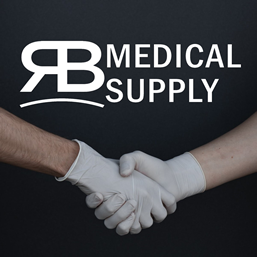
How Effective Are the Different Types of Masks Against Viruses?
Although any face covering can slow the spread of infection for any viral outbreak, some masks are more effective at protecting the wearer from contracting an illness. These are the most common face masks used to protect against the spread of viruses.
Cloth Face Mask
Often made from tightly woven cotton, cloth face masks help slow the spread of infection by helping prevent the wearer from transmitting viruses through large droplet respirations, like those produced during coughing or sneezing. Disposable paper masks provide similar protection against the spread of infection. Recommended by the CDC for the general public, these masks are meant to protect others from the transmission of unknown illnesses, including the flu, by asymptomatic wearers.
Face Shield
Designed to fit snugly to the forehead and extend below the chin, face shields are often worn in conjunction with other PPE by medical personnel during procedures where a patient’s bone fragments, blood or other bodily fluids could splatter or spray. Today, they are often worn when intubating patients who have been diagnosed with infectious diseases. Face shields are primarily relied upon to protect the wearer’s eyes from exposure to bodily fluids. There is not enough evidence to determine whether face shields, on their own, provide effective protection against respiratory viruses like the flu. For this reason, the CDC does not recommend the use of face shields as a substitution for masks. However, when worn together with a face mask, the face shield can offer increased protection against airborne contaminants.
Surgical Face Mask
Manufactured from non-woven fabric, surgical face masks fit loosely to the face and are intended to provide protection from liquid splashes and direct aerosol spray during medical procedures. Regulated by the FDA, surgical face masks must meet ASTM standards, ranging between four levels of protection, from minimum up through Level 3. When properly worn, surgical face masks are effective at blocking direct fluid spray with particles as small as 0.1 microns. However, due to their loose fit, they are not as effective at protecting against small, airborne particles, as from a cough or a sneeze.
RB Medical Supply provides domestically made surgical face masks designed to protect all frontline workers from potentially harmful viruses and other germs. Our 3-layer surgical face mask meets ASTM Level 3 specifications, offering 120 mm Hg fluid resistance, which provides a barrier against light or moderate aerosol, fluid, and spray. This antiviral face mask provides excellent protection against direct spray respiratory droplets containing viruses.
Respirator Mask
Respirator masks, including the N95 and KN95 masks, are designed to create a seal around the mouth and nose and provide filtration protection against liquid spray and very small airborne particles. Composed of multiple layers of synthetic, non-woven fibers, respirator masks are regulated to filter out at least 95% of airborne particles 0.3 microns or larger. RB Medical Supply’s domestically made N95 respirator masks provide protection against particles and bacteria that are 0.1 microns or larger. Respirator masks are the most effective PPE against airborne viruses, but because of shortages in supply, the CDC recommends reserving these masks for frontline workers and medical personnel.
Guidelines for Improving the Effectiveness of Any Antiviral Face Mask
Regardless of the style of antiviral mask one wears, the mask’s effectiveness against viruses will depend on the wearer adhering to best practices for wearing and handling the mask.
- An antiviral face mask is only effective when positioned firmly over the nose, mouth, and chin. This allows it to filter the air as we breathe in and out.
- Thoroughly wash your hands before and after donning and doffing an antiviral mask. Be careful not to touch the inside of the mask when putting it on. Avoid touching it throughout its use.
- Dispose of masks after use by first placing them in a paper bag and then putting them in a garbage can. If reusing a disposable mask, place it in a bag between uses. Wash cloth face masks in hot, soapy water after every use.
- Adhere to CDC guidelines for extended use or reuse of surgical or respirator masks. Typically, respirator masks should not be worn longer than 8 hours for extended use or reused more than 5 times. Use beyond these guidelines may interfere with the mask’s ability to protect the wearer from airborne viruses.

Place Your Antiviral Face Mask Order With RB Medical Supply
RB Medical Supply, a division of RB Sigma, LLC, is a top-tier medical supplier, providing a full line of high-quality, domestically made Personal Protective Equipment. We offer surgical face masks, face shields, respirator masks and more -- all manufactured in the heart of Northeast Ohio in our own Mentor facility. We are passionate about protecting frontline workers and the population at large during this time of great need. You don’t need to compromise when it comes to protecting yourself and others from the spread of illness. View our selection and place your order today.

